Description
Introduction
EMT Quick Actuating Closures, fast-acting devices designed to seal pressure vessels, are critical to many industrial applications. Despite their utility, understanding the potential risks linked with these closures is of paramount importance to prevent accidents.
Key Features
- The first key feature of EMT Quick Actuating Closures is the pressure warning lock, a crucial feature designed to alert operators of any internal pressure changes. This system acts as an early warning mechanism, providing operators with vital time to react and mitigate potential hazards. By monitoring the internal pressure levels of the system, it helps prevent accidental opening under pressure. This safeguard enhances the overall safety and efficiency of the operation, ensuring that the equipment is always under optimal working conditions. The use of a pressure warning lock can significantly reduce the risk of equipment damage and operator injury due to unexpected pressure changes.
- Secondly, the large cross-sectional diameter O-ring plays an essential role in sealing and protecting the system. This robust O-ring is designed to withstand high pressure and temperature fluctuations, making it a reliable component in harsh and demanding environments. The size and design of the O-ring ensure that it provides an excellent seal, preventing leaks and maintaining the integrity of the internal environment. This kind of sealing mechanism is crucial in many industries, including oil and gas, where the prevention of leaks is of paramount importance.
- The third major feature of EMT Quick Actuating Closures is the option for left and right-hand opening doors and the flange option. This provides a high degree of flexibility and convenience for operators. Depending on the specific layout of the workspace or the preference of the operator, doors can be configured to open to the left or right. This makes it more adaptable to different installation scenarios. The flange option further extends this versatility, allowing the equipment to be easily integrated into a variety of system configurations. This feature enhances ergonomics and ease of use, making the equipment more user-friendly.
- Lastly, there is an optional safety feature of EMT Quick Actuating Closures: a side-screw assist for 24 to 30-inch closures. This feature is designed to provide additional support and safety when operating larger closures. The side-screw assist mechanism makes it easier to open and close larger closures, reducing operator fatigue and increasing overall safety. In addition, it can help to ensure that the closures are securely fastened, reducing the risk of accidental opening. This optional feature is especially useful in operations that frequently deal with larger closures, offering an additional layer of security and convenience.
Quick Actuating Closures: An Overview
These closures come in various forms, including interlocking lug-type doors, expanding or contracting ring-type doors, clamp-type doors, cam latch-type doors, bar locking-type doors, and swing bolt-type doors. Each type, while serving the same basic function, has unique features and considerations.
Hazards and Accidents: A Reality Check
The history of industrial accidents is littered with catastrophic incidents involving Quick Actuating Closures. Design glitches and faulty locking mechanisms have often been the culprits. Safety devices, when incorporated correctly, can play an essential role in accident prevention.
Operational Safety: More than Just Operation
Proper training and supervision of operators, the establishment of safe operating procedures, regular preventive maintenance, inspections, and meticulous record-keeping are all crucial in ensuring the safe operation of these closures.
Inspection and Testing: A Critical Necessity
Inspections of Quick Actuating Closures, both monthly and annual, are crucial to detect any potential issues. Special attention should be paid to parts like gaskets, hinges, locking rings, and safety devices. Incomplete engagement of these parts can have serious safety implications.
Accident Prevention: Where Machines Meet Humans
Safety interlocks and interconnecting systems are important, but it’s also essential to ensure the vessel is fully vented before opening the door. Overconfidence inexperienced operators can lead to complacency. Ongoing education and safety awareness are, therefore, key to preventing accidents.
Maintenance of EMT Quick Actuating Closures
Proper maintenance of quick-opening closures is pivotal to prolong their operational life. This includes upkeep of painted surfaces, coating of non-painted surfaces with weather protectants, and lubrication of sealing surfaces, typically with a light layer of grease.
For closures equipped with zerks (fittings) on hinge arms or latch mechanisms, routine greasing is recommended. Quick-opening closures predominantly use O-rings to ensure a pressure seal. It’s crucial that these O-rings are compatible with the product they’re used with. Commonly used materials include Buna N, fluorocarbon (Viton), and hydrogenated Buna N.
To avoid disruption in operations, it is advisable to keep spare O-rings readily available. This is because O-rings may deteriorate or swell when exposed to the environment, necessitating immediate replacement. Swelling of the O-ring can make the closure difficult to open or close.
The pressure-warning indicator is also sealed with a small O-ring, which should be regularly inspected and replaced if necessary.
Some closures feature adjustments on the hinge arm to align the door with the hub. If opening or closing the door becomes challenging, an adjustment may be required. This could be due to several reasons, such as post-weld heat treatment (PWHT), mishandling of the closure, welding to the vessel, or wear and tear over time.
Conclusion
The responsibility to ensure the safe operation of vessels with EMT Quick Actuating Closures lies not just with operators, but also with designers. Planned maintenance and operational procedures play a significant role in this. Staying abreast of current ASME Boiler and Pressure Vessel Code requirements is also crucial in this regard.

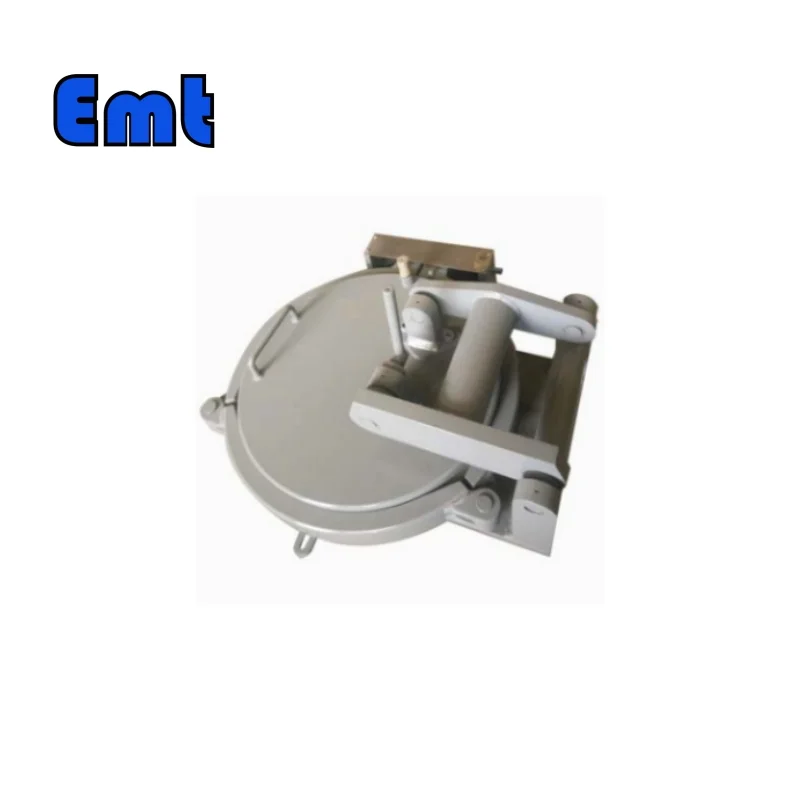
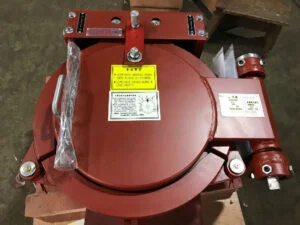
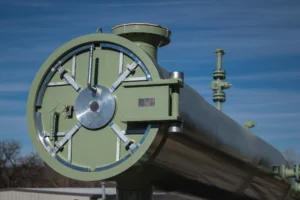
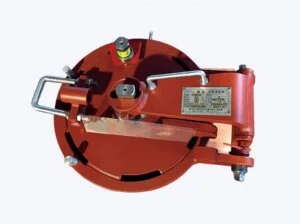
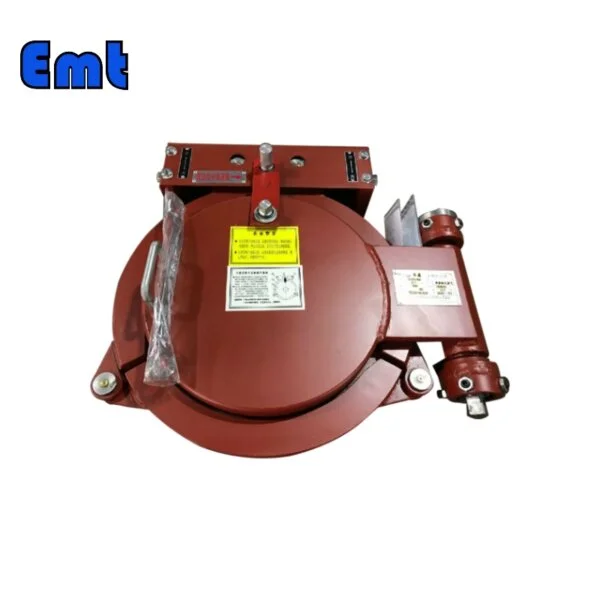
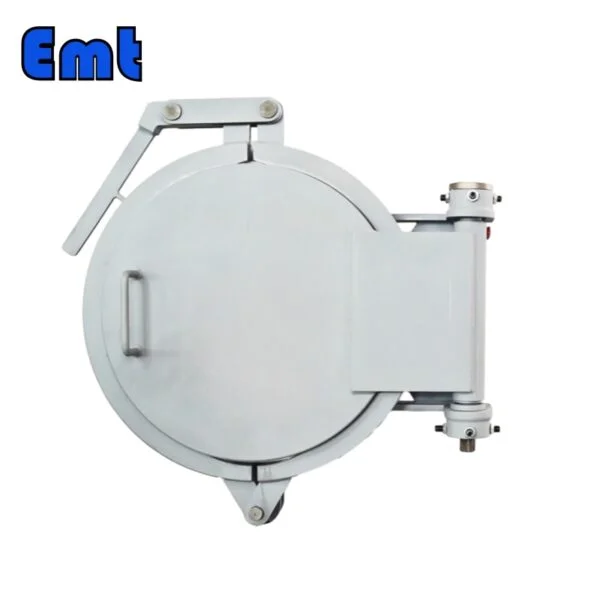
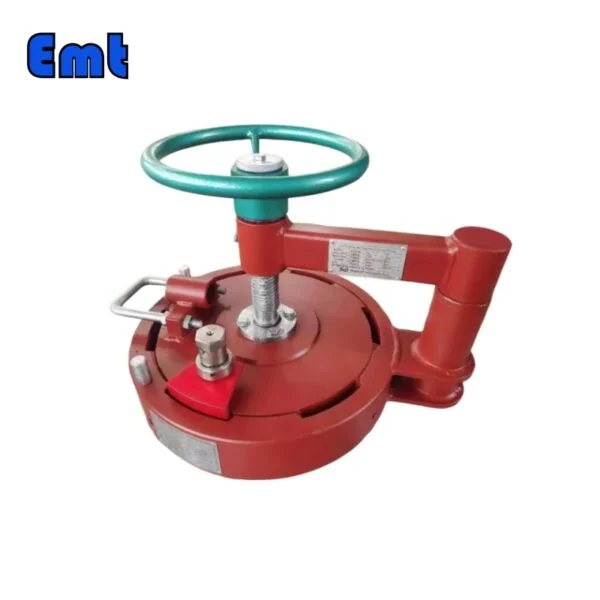
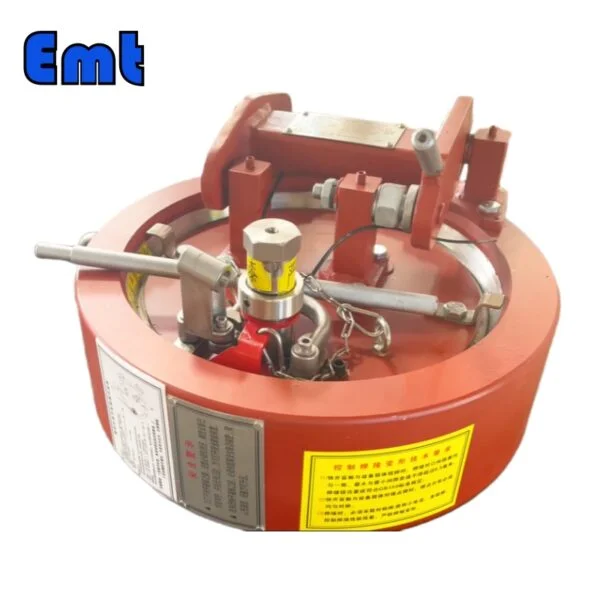
Reviews
There are no reviews yet.